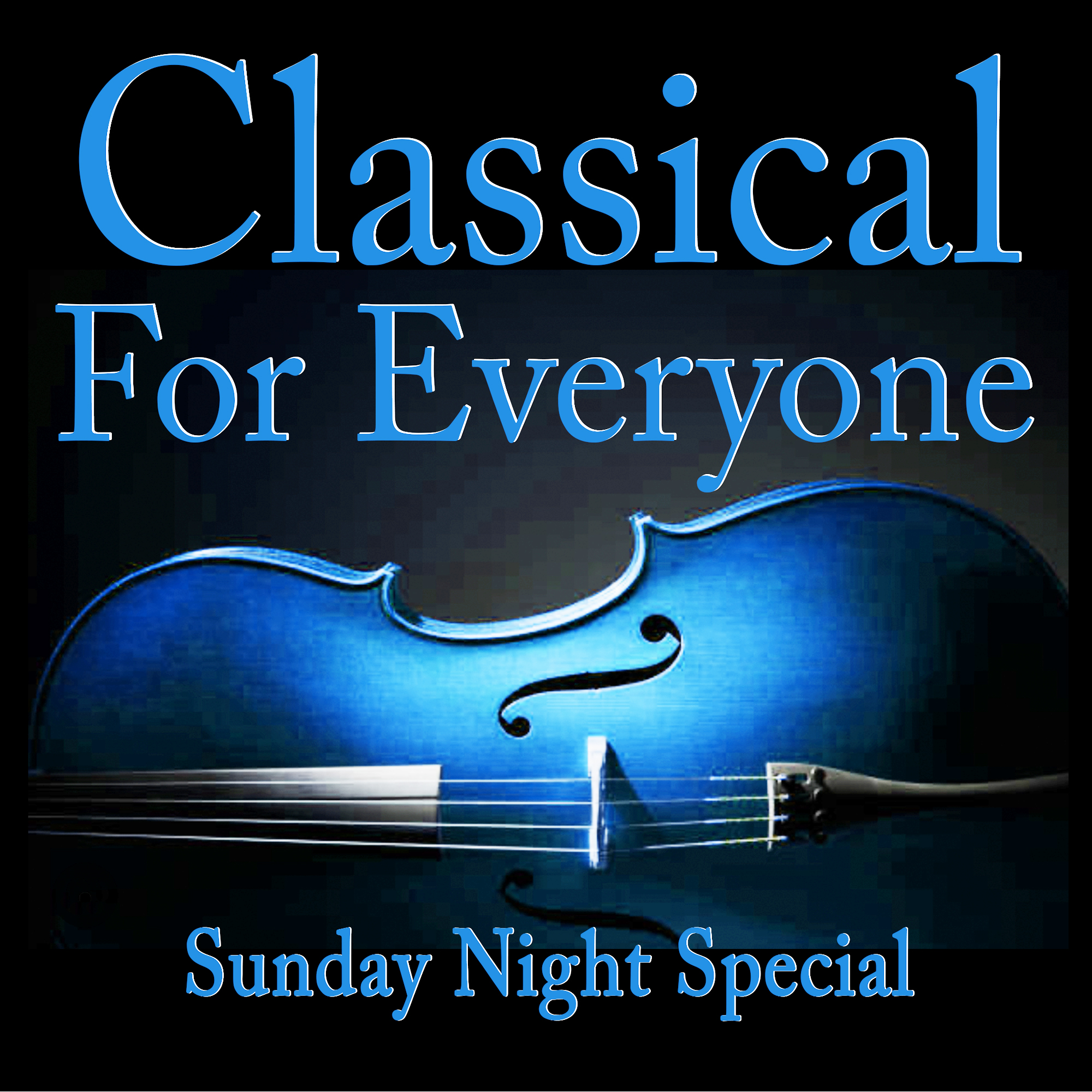Sunday Night Special 3… John Luther Adams’ ‘Become Ocean’

The name comes from the night of the week when for some of us, the demon of insomnia hits the hardest… and because my preferred antidote is getting lost in some music. Of course this series is for everyone… but it is perhaps intended a little more for those of you whose sleep has been troubled. The idea of the special is to play just one piece, uninterrupted and in its entirety… with a few minutes of background explained at the end of the episode. This week… John Luther Adams’ ‘Become Ocean’. Performed by the Seattle Symphony Orchestra conducted by Ludovic Morlot.
Hello Everyone, my name is Peter Cudlipp. Welcome to another in the occasional series of extra episodes of the Classical For Everyone podcast. Episodes which I am calling Sunday Night Specials. The name comes from the night of the week when for some of us, the demon of insomnia hits the hardest… and the specials are because my preferred antidote… is getting lost in some music. Of course this series is for everyone… but it is perhaps intended a little more for those of you whose sleep has been troubled.
The idea of the special is to play you just one piece, uninterrupted and in its entirety… with a few minutes of background explained at the end of the episode… if you’re interested. But the main thing is to get straight into the music.
Though first I will quickly address a couple of complaints I’ve had from listeners who felt that the music from the first two specials did the opposite of put them to sleep. Maybe that is implied in my introductions but I really mean this is music to accompany you when sleep is refusing to come. Hopefully a sweet way to pass the time and distract from worried and anticipation. Not something necessarily to put you to sleep.
And in complete contradiction to what I just said, the piece I am going to play tonight might just be music to bring on sleep.
Here now is the exquisitely contemplative ‘Become Ocean’ by John Luther Adams written in 2013. And in this recording it is performed by the people who commissioned it… the conductor Ludovic Morlot and the Seattle Symphony Orchestra. It is about 42 minutes long and is one continuous succession of slowly building climaxes. And as you might imagine… it starts very quietly.
A
I hope you enjoyed that performance of ‘Become Ocean’ by John Luther Adams written in 2013. And in this recording it is performed by the people who commissioned it… the conductor Ludovic Morlot and the Seattle Symphony Orchestra.
And now here are a few minutes of background for you.
John Luther Adams (born 1953) is an American composer whose immersive, large-scale works explore the relationship between music and the natural world, particularly the landscapes and ecosystems of Alaska where he lived for nearly four decades.
Now he is not to be confused with the other American composer ‘John Adams’ who is six years older than John Luther Adams. Both Americans. Both still alive. Both popular. Both called John Adams. And both still writing.
Born in Mississippi and raised in various parts of the American South, John Luther Adams initially pursued environmental activism before turning to composition, studying at the California Institute of the Arts while developing his distinctive compositional voice that blurs the boundaries between concert music and soundscape.
Adams gained international recognition with works like "The Place Where You Go to Listen," a sound installation that translates real-time environmental data into music, and the Pulitzer Prize-winning orchestral work "Become Ocean" (2013) I just played you.
His music typically unfolds over extended time spans with gradually shifting textures and harmonies, drawing inspiration from natural phenomena such as bird migration patterns, weather systems, and geological processes. Rather than traditional melodies and rhythms, Adams creates what he calls "sonic geography" - music that embodies place and environmental experience.
In a program note on the Los Angeles Philharmonic website John Luther Adams wrote this about ‘Become Ocean’.
“Eventually we begin to realize that we’re part of something much larger than ourselves. Become Ocean embraces this idea, but gets its title from something much more personal for me. Back in the late ’70s, John Cage wrote a mesostic poem called ‘Many Happy Returns,’ in honor of his dear friend – also my mentor and friend – Lou Harrison. He compares Lou’s music to a river delta, with all these different influences and currents, coming together in a big beautiful sweep of music. And in the last line of the poem, Cage writes, ‘Listening to it, we become ocean.’ I’ve always been struck by what a beautiful image that is.”
My name is Peter Cudlipp and I hope you enjoyed this Sunday Night Special of the ‘Classical For Everyone’ podcast. There will be a regular episode in the next few days and another Sunday Night Special in perhaps a few weeks. Thanks for listening.







